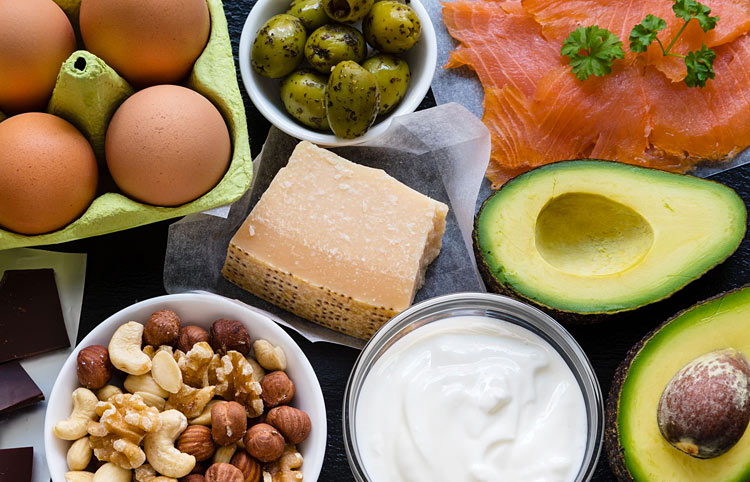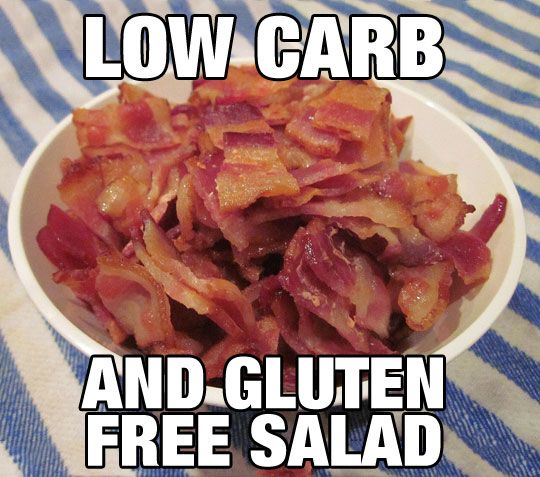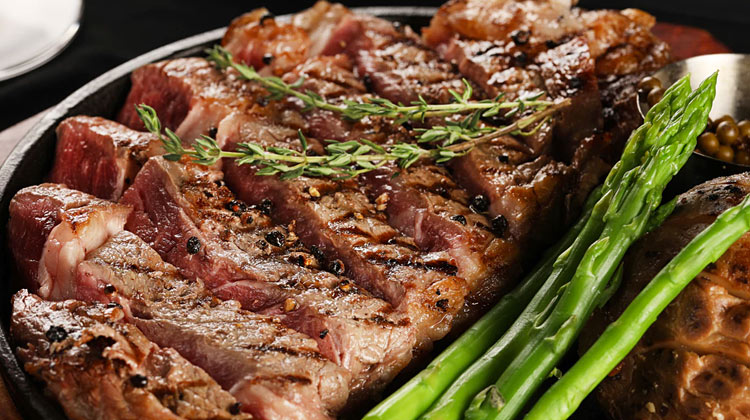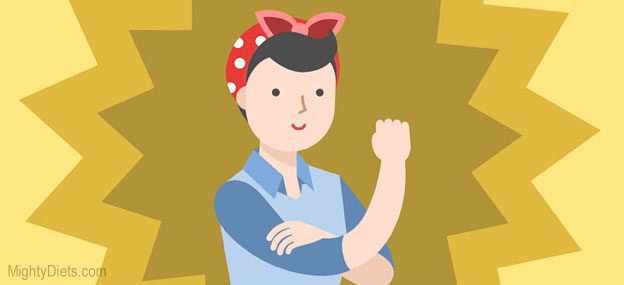You had a baby! Seriously, think about that for a minute. You might not be able to assemble a desk from Ikea, but you just created a brand new human being. That’s really incredible! But, let’s be honest. There’s a part of you that’s just not feeling like, well, you. It’s hard being a new mom, and the messages we see and hear make it even harder to figure out how we should be feeling.
You’re probably in an endless fog of middle-of-the-night feedings and diaper changes. Many women also struggle with more serious issues like stress, pain, and postpartum depression.
To make things worse, you might find yourself on social media, believing that something is wrong with you because those young “influencer” moms (with perfect skin and teeth!) on Instagram all seem to just effortlessly bounce back to 110 pounds after baby number three.
Then, on the other side are the people telling you to embrace your postpartum body, that how you look doesn’t matter, and that you should be proud to show off your battle scars of motherhood.
But really, you just want to feel “normal” again…. Like, now.

A big part of that means getting back to your “old,” familiar body. (Like, 30 pounds ago…) As a new mom it might be tempting to use “any means necessary” to achieve that weight loss goal, you have to be smart about it. This is when you you have to think beyond the narrow goal of “fast weight loss” and start thinking about how to drop those pounds in a healthy and sustainable way.
Just about every discussion about fast weight loss right now is going to at least touch on the controversial Ketogenic diet. Unless you’ve been living under a rock, you know that the Keto diet is all the rage.
So, is the Keto diet a good option postpartum for dropping that baby weight? Is Keto even safe if you’re breastfeeding? Let’s take a quick look at how Keto works, and then decide if it’s a good diet option to lose that baby weight.
Keto 101:

So let’s bring you up to speed quick on the basics of the keto diet. The diet is high in fat and low in carbs. When you’re on it, your diet consists of:
- Fat: 75%
- Protein: 20%
- Carbs: 5%
Yeah, we weren’t kidding when we said it’s high-fat and low-carb! When you are following Keto, the majority of your diet on Keto includes foods like poultry, meat, eggs, full-fat dairy, and nuts. While veggies are allowed, they have to be non-starchy, like broccoli, asparagus, and spinach. Fruits are a no-no. (Really!?) While small amounts of berries are allowed, all other fruit is considered to be too high in carbs to be Keto-friendly.
So, to sum it up, bacon is allowed, but apples and carrots aren’t. Does that make sense? It probably shouldn’t!
• Why is it called Keto?
Well, scientifically speaking, when you drastically cut carbohydrates, your body is forced to make the switch from burning carbs for fuel to fat. This fat-burning state puts the body in a state known as “Ketosis.” While on this diet, the goal is to keep your body in a constant state of Ketosis, which is why there’s a focus on High Fat.
• Does the Keto Diet Work?
Most people that I know who have tried Keto saw weight loss results pretty quickly. This fast initial weight loss is obviously motivational, but the Keto diet itself is pretty controversial, and its sustainability is suspect. I mean, let’s go back to the Orwellian idea that eating bacon is good on this “diet.” (And, freedom is slavery, I assume?)

I know you really want to get rid of that baby weight, but before you start throwing away all of the bread, pasta, and fruit in your house, be aware that Keto has more than its share of potential side effects.
If you’re a new mom, you’ll want to carefully consider whether the Keto diet is safe postpartum.
Keto: Postpartum Side-Effects?
Women who are postpartum are often a hormonal mess. As a new mom, you might find yourself wanting to cry when you look at the laundry, or snapping at your husband for swaddling the baby the wrong way.
So, is this really a good time to start a controversial, and potentially unhealthy diet? The Ketogenic diet can cause negative side-effects, and these problems can be even more worrisome for postpartum women.
Here are 5 potential side-effects that new mothers may suffer on the Keto diet:
- Sleep problems: When you restrict carbs, it can have adverse effects on your thyroid and your adrenals, which can result in decreased milk supply and cause sleep disturbances and insomnia. (As if you needed something else to disrupt your sleep!)
- Constipation: The Ketogenic diet is generally low in fiber and high in fat, which can cause constipation. This is an issue that new moms might already be struggling with.
- Decreased milk supply: While the Keto diet might not have a direct effect on milk supply, it’s designed to make you feel full quickly. This can cause you to eat fewer calories, which in turn might decrease your milk supply.
- Dehydration: Another potential issue with for new moms is that the Keto diet doesn’t provide enough fruits and vegetables. Instead, the diet relies on high-fat, calorie-dense foods, which can lead to dehydration. As a new mom producing breast milk, that’s not a good thing!
- Keto flu: When you first start the Ketogenic diet, you might experience what’s known as “Keto Flu.” The abrupt change in your diet can cause your body to go through withdrawl from the drastic cut in carbs. This can cause flu-like symptoms, including nausea, headache, irritability, diarrhea, and fatigue.
These distressing symptoms would be worrisome at a “normal” time, let alone during the vulnerable and precarious time after you’ve had a baby!
Should a Pregnant or Postpartum Mom Even Consider the Keto Diet?

Well, that’s a hard question to answer. If you were on the Ketogenic diet before you got pregnant, then your body has probably adjusted to being in Ketosis. In that case, at least you’re not introducing another new shock to your system on top of the hormone imbalances and sleep deprivation that comes along with having a newborn. In a relative way that might mean Keto isn’t as bad for you postpartum.
However, if you’re thinking of trying Keto while pregnant or after having a baby, this is probably not the time to try something so potentially disruptive to your diet, and doesn’t satisfy pregnancy or postpartum nutrition needs.
Jeez, Is there anything good about Keto?
You can probably tell that, like most doctors, we’re not fans of Keto as a sustainable diet. However, when evaluating the potential benefits of Keto, it’s important to consider where you’re coming from. If you’ve lost control of your eating, and have surrendered to bad habits and cravings, then being on Keto might be an improvement. If nothing else, in theory, the Keto diet can bring control and discipline to your eating.
Going Keto can help you think more about what you’re putting into your body, and there are “healthier” ways to follow Keto. (Hold the bacon, please!) If doing something like Keto makes you read labels and seek out healthy recipes, those are behaviors that will stick with you long after the baby weight is gone.
So take a breath. The laundry will get done, and the house will (maybe) eventually be clean. Whichever diet you choose, remember, the goal is wellness. You need to be healthy and strong; not just for you, but for your baby.
A Better Postpartum Diet Than Keto?

Although Keto has become extremely popular because of fast initial weight loss, it’s quite controversial with most doctors and health experts. In fact, you won’t really see the Ketogenic diet get high marks on anything except “short term weight loss” from any trustworthy health source. (It’s ranked #38 in “Best Diets” by U.S. News)
So, what’s a better way for new moms to lose weight postpartum?
We recently wrote an article about the essential ingredients of a great diet in which we stress the importance of: healthy eating, support & accountability, behavioral change, simplicity, and few restrictions for healthy and sustainable weight loss.
The Ketogenic diet fails the litmus test in most or all of these areas, so we can’t feel good about recommending Keto to drop the baby weight.
So, what diet do we recommend to lose weight postpartum? We think that you should consider Noom, and here’s why:
Noom (Highly Recommended)

The new kid on the block is Noom, and their rise in popularity has really redefined the diet wellness space. Their app was designed by behavioral psychologists, and the program focuses on the significant psychological component of weight loss. This holistic approach to wellness seems to be even more important postpartum.
The Noom app seems to successfully bring together the most important ingredients of wellness, so weight loss ends up really just being a welcome side-effect of a healthier lifestyle. Noom (virtually) holds your hand and walk you through small attainable goals to achieve not only sustainable weight loss, but behavioral change that should last a lifetime.
You know, I started writing the conclusion of this article in an effort to recommend two good weight loss options, but as I write this, I’m thinking about how important the psychological component of weight loss is to new mothers. Postpartum is probably no time for a DIY diet, as going it alone is hard enough during “normal” times when you don’t have all of the challenges of a new baby.
The Noom app offers in-person support, guidance, and a specialist to help you define your goals to create a roadmap for success; all for about $40 per month. How do I know? I tried it , and really liked it!
If you’d like to learn more, you can take their “free 90-second evaluation“ which is followed by an offer to start a 14-day trial for free. If you aren’t really feeling it, just quit before the free 14-day trial ends. Here’s the offer:
Conclusion:
A woman who has just had a baby is expected to be a little bit of Superwoman and Atlas at the same time. You’re asked to do a thousand different things, (including sustaining the life of another human being!) in a sleep-deprived, hormonal state, with what often feels like the weight of the world on your shoulders.
OK, that sounded kind of glass-half-empty. Of course, there’s potential for some incredible happiness, pride, and joy sprinkled in there too, but it’s really a unique and challenging time of your life. So, that means potential lifestyle changes like a diet or weight loss program should get extra scrutiny.
Make sure that you choose a diet wellness program that goes beyond weight loss and focuses on positive and sustainable lifestyle and behavioral changes, and not just fast weight loss!
Also, as a postpartum woman, it’s wise to speak with your doctor before beginning any diet or weight loss plan.
*Featured image credit: rawpixel.com


